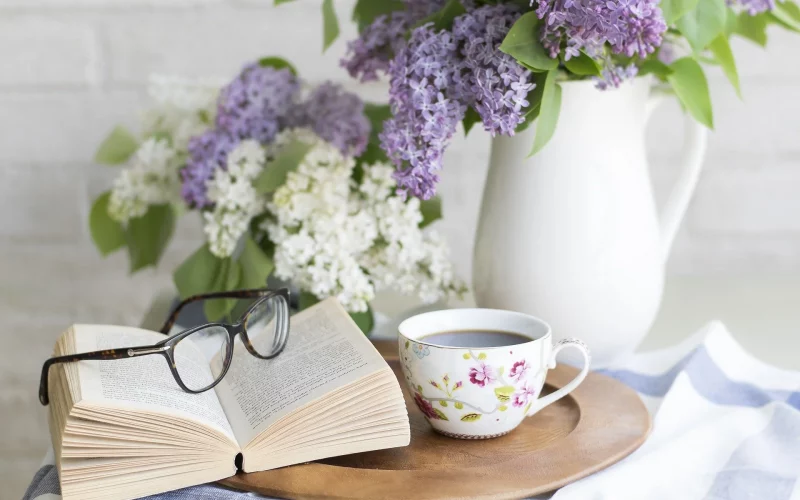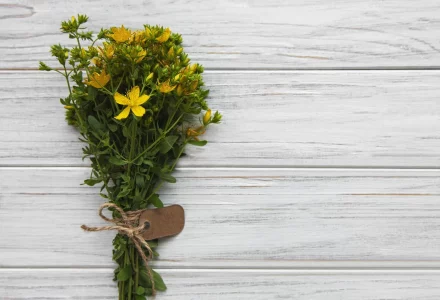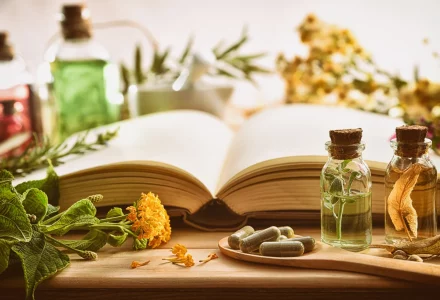Countering stress and insomnia with natural means
Reading Time: 5 minutes

Table of contents
The subject of stress is omnipresent these days. According to the stress report of the American Psychological Association (APA), the stress level of Americans is rising steadily. Corona in particular plays a role in this context. Job insecurity, financial worries and uncertainty about the situation in the country are the biggest factors. The consequences of this stressful situation are in some cases considerable health impairments.
When considering the physical and emotional toll of increased stress, nearly half of adults (49%) report their behavior has been negatively affected. Most commonly, they report increased tension in their bodies (21%), “snapping” or getting angry very quickly (20%), unexpected mood swings (20%), or screaming or yelling at a loved one (17%).
– American Psychological Association
Recover properly after work
The quality of life decreases if one does not recover sufficiently after work. Easier said than done? Many people have other tasks to complete after work. Whether children, partner or household, domestic duties still await at home. The first step in recovery is to switch off, because the stress hormones that you released during the day have to be broken down.
They try to end the working day with a ritual. Slip into comfortable clothes, have a cup of tea or go out with the dog – what you choose depends on your personal situation. Mind your work and try to actively suspend thoughts or conversations about the work.
Good sleep is another important component when it comes to recovery. The bedroom shouldn’t be too warm – ventilate well before you go to sleep. Book instead of cell phone or laptop: The blue light on screens inhibits the release of the sleep hormone melatonin. In addition, do not drink caffeinated or alcoholic beverages in the evening. You can find more helpful tips here.
Herbal means of support
Nature offers many opportunities to help you relax and sleep well. Herbal alternatives usually have fewer side effects and are not addictive. We have compiled the most common herbal helpers for you:
Valerian
Valerian is probably the most popular plant when it comes to restlessness and sleep problems. While valerian is calming during the day, it improves the quality of sleep at night. It has not yet been proven that the plant also helps with sleep disorders. A meta-analysis from 2010 came to the conclusion that “its effectiveness could not be proven with quantitative or objective measurements”.
The HMPC – the European authority for herbal medicinal products – also does not give recommendations for use in the case of stress and sleep disorders, as there is insufficient scientific data.
While the scientific data is still lacking, valerian is widely recognized for its calming effects. However, the exact mechanism of action has yet to be researched.
Conclusion: Valerian is a good plant-based support for slight restlessness and for improved sleep quality. However, there is no scientific evidence that the plant helps with sleep disorders.
Hops
Like valerian, hops can help with anxiety and sleep problems. It is believed that hops have a similar effect to the sleep hormone melatonin. How exactly hops work has not yet been scientifically researched. The study situation is correspondingly thin. Most of the time, hops are offered in combination with other plants. For example, there are often valerian-hop extracts or hops-lemon balm-St. John’s wort essences.
Conclusion: Like valerian, hops can help with mild restlessness and promote peaceful sleep.
Melissa or Lemon balm
Melissa not only smells pleasant, it can also help with nervous sleep disorders. Melissa is also known to calm the stomach, which is why it is part of many herbal medicines for stomach and intestinal problems (e.g. Iberogast®).
Stomach problems caused by stress are not uncommon and often manifest themselves in the form of a bloated stomach or constipation. Melissa can help here.
Conclusion: Lemon balm can help with nevus-related sleep disorders and stress-related stomach ailments.
Hemp
There has been a real hype in recent years about the so-called CBD from hemp flowers. CBD products have no intoxicating effects. Here, too, the study situation is moderate and without significant results. Until now, no scientific proof of its effectiveness on sleep disorders has been made. Sometimes there can also be adverse side effects. In addition, the concentration in many preparations is usually not high enough to achieve an effect.
Conclusion: CBD products are not allowed to be sold as food supplements in the EU and are mostly advertised as room fragrances. Since there are many herbal alternatives to CBD, these should be used.
Lavender
Lavender has a calming effect and is used both internally and as a fragrance spray. But be careful: Lavender should not be used internally if you are fructose intolerant. You should also watch out for side effects such as indigestion.
Here you can find a meta-analysis of the studies with lavender oil capsules.
It is widely recognized that the scent of lavender is calming and can help you fall asleep. There are many types of lavender scent. As a pillow spray, for example, it can be sprayed on the bed before going to bed.
Conclusion: The best way to enjoy lavender is as a scent. Spray the lavender scent on her pillow before bed.
St. John's wort
St. John’s wort is probably one of the most recognized plants when it comes to stress and nervousness. Today St. John’s wort medicines are used for mild to moderate depression.
St. John’s wort is one of the few plants for which there are positive study results. You can find a detailed article on St. John’s wort here.
Conclusion: St. John’s wort can help with stress without making you tired. If stress is the cause of the insomnia, it can also be of use here.
Greek mountain tea
Our favourite Greek mountain tea should, of course, not be missing from our list. As we have already described in our blog article, Greek mountain tea, (Sideritis scardica), can lower stress levels and increase general stress resistance. The plant also has a calming effect and can therefore also help with sleep problems. We have explained what to look out for when buying products with Greek mountain tea.
Conclusion: Greek mountain tea can lower the stress level and help with sleep problems. There are also various combination preparations here, for example with certain vitamins or with St. John’s wort.
Conclusion
Regardless of which herbal alternative you choose, please note that the effects of most remedies only set in after at least two weeks. Try to end your working day with a little ritual on your mind. Extracts from valerian, hops, lemon balm, lavender, St. John’s wort and Greek mountain tea can help reduce stress and help you to fall asleep and stay asleep.
More articles on this topic

St. John’s wort – herbal medicine between tradition and modernity
The real St. John’s wort, (Hypericum perforatum), has been one of the most popular medicinal plants in Europe since the end of the 20th century. In 2015, the characteristic yellow…

You should pay attention to this when buying products with Greek mountain tea
Thanks to the research of Prof. Pahnke, the level of awareness of Greek mountain tea (Sideritis scardica) has increased considerably. The consumer often cannot assess which products are best suited…

Relieve Alzheimer’s symptoms with plant extracts
You want to learn more about the research of Prof. Pahnke? We summarized the most important information in this article.

